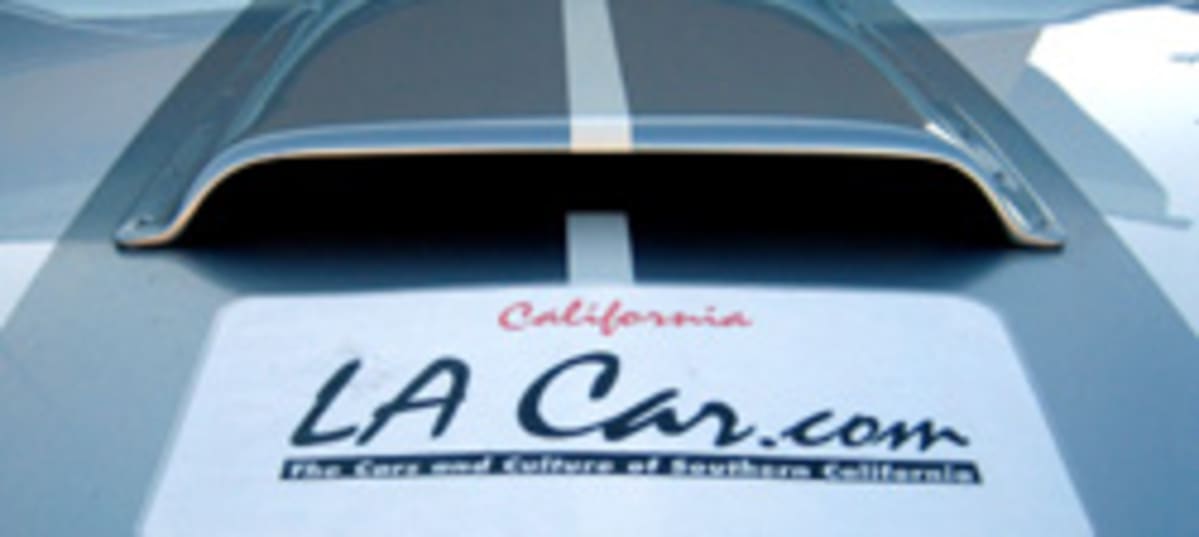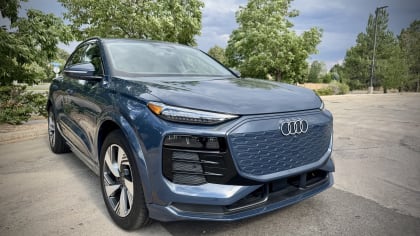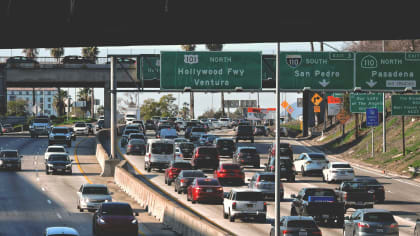BACK SEAT DRIVING - DECEMBER 2008
This article is from our archives and has not been updated and integrated with our "new" site yet... Even so, it's still awesome - so keep reading!
Published on Wed, Dec 3, 2008
By: The LACar Editorial Staff

Â
Â
GM's Moraine plant in Ohio closed on December 23, 2008
WRIGHT: BACK SEAT DRIVING
BALL AND CHANGE
Having the Cajones to Say "It's Over"
In Pan-Am Dies, America Lives,
New York Times Op-Ed columnist Robert Cohen says, "The whole financial
crisis is about the death of responsibility: the buck stopped nowhere.
Irresponsibility has also characterized Detroit. I don't see how you restore
responsibility with a bailout. Obama has a deeper task than changing the
economy; he has to change the culture. The risk of saving the moribund is the
demise of the vital - and the long-term cost of that is incalculable."
Cohen's thoughts echo a
lot of the things that I've been thinking about lately. If we don't change the
culture, as he puts it, things have the potential to get really ugly. I remember
in the early 1980s when the Swedes, after years of propping up various
industries, had their 'Nixon goes to China' moment: The Social Democrats (of
all people) told the shipbuilding industry (which had been prominent in Sweden
for over 400 years), "You're done, close it up, we're not paying for it
anymore."
It will be interesting to see if any American politicians have the requisite
cojones to do the same with any USA-based industry with a long history, and I'm
not just thinking about the auto industry.
- Bill Wright
Â
Â
Â
Â
 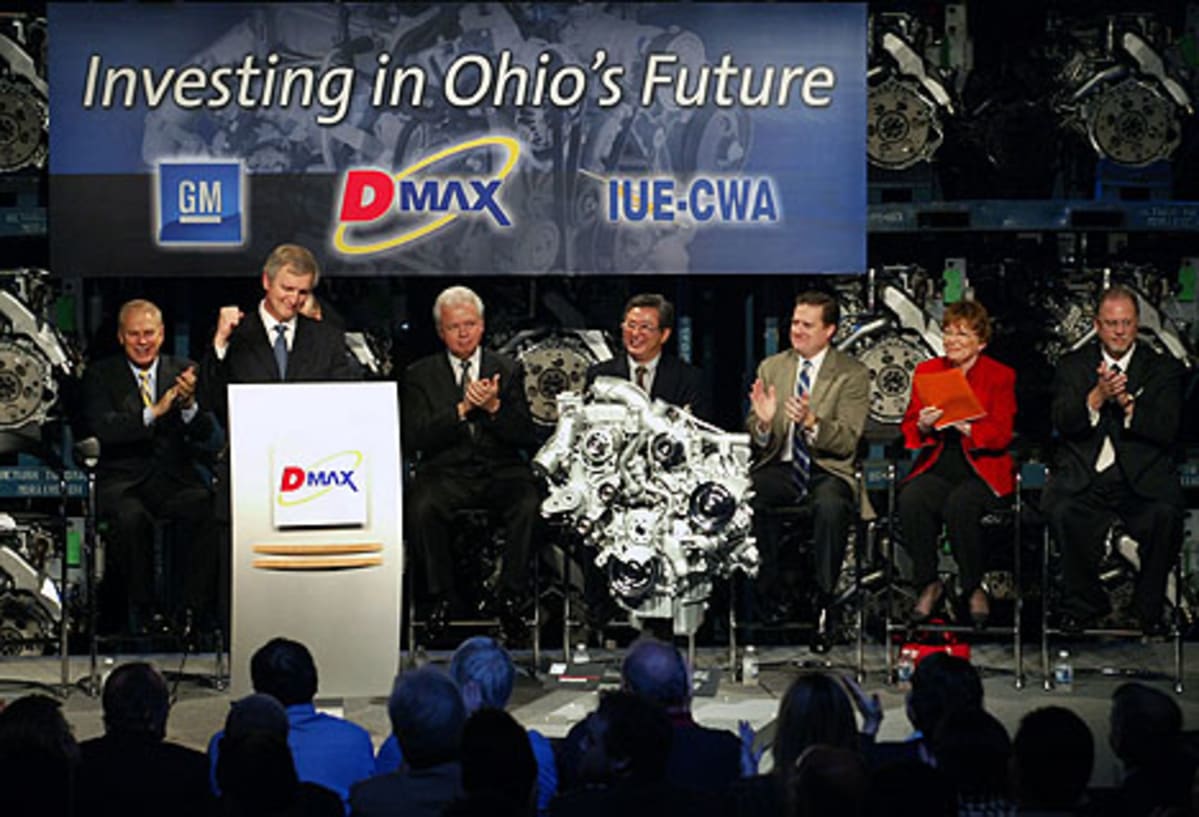
Â
Employees at GM's Lansing Delta Township facility
GEORGE W. BUSH: BACK SEAT DRIVING
THE BUCK STOPS HERE
President Bush on the Emergency Aid for Automakers
For years, America's automakers have faced serious challenges; burdensome costs,
shrinking share of the market and declining profits. In recent months, the
global financial crisis has made these challenges even more severe.
Now, some U.S. auto executives say that their companies are nearing collapse and
that the only way they can buy time to restructure is with help from the federal
government. It's a difficult situation that involves fundamental questions about
the proper role of government.
On the one hand, government has the responsibility not to undermine the private
enterprise system. On the other hand, government has a responsibility to
safeguard the broader health and stability of our economy.
Addressing the challenges in the auto industry requires us to balance these two
responsibilities. If we were to allow the free market to take its course now, it
would almost certainly lead to disorderly bankruptcy and liquidation for the
automakers.
Under ordinary economic circumstances, I would say this is the price that failed
companies must pay. And I would not favor intervening to prevent the automakers
from going out of business. But these are not ordinary circumstances.
In the midst of a financial crisis and a recession, allowing the U.S. auto
industry to collapse is not a responsible course of action. The question is how
we can best give it a chance to succeed.
Some argue the wisest path is to allow the auto companies to reorganize through
Chapter 11 provisions of our bankruptcy laws and provide federal loans to keep
them operating while they try to restructure under the supervision of a
bankruptcy court.
But given the current state of the auto industry and the economy, Chapter 11 is
unlikely to work for American automakers at this time. American consumers
understand why. If you hear that a car company is suddenly going into
bankruptcy, you worry that parts and servicing will not be available and you
question the value of your warranty.
With consumers hesitant to buy new cars from struggling automakers, it would be
more difficult for auto companies to recover. Additionally, the financial crisis
brought the auto companies to the brink of bankruptcy much faster than they
could have anticipated. And they have not made the legal and financial
preparations necessary to carry out an orderly bankruptcy proceeding that could
lead to a successful restructuring.
The convergence of these factors means there is too great a risk that bankruptcy
now would lead to a disorderly liquidation of American auto companies. My
economic advisers believe that such a collapse would deal an unacceptably
painful blow to hardworking Americans far beyond the auto industry. It would
worsen a weak job market and exacerbate the financial crisis. It could send our
suffering economy into a deeper and longer recession.
And it would leave the next president to confront the demise of a major American
industry in his first days of office.
The more responsible option is to give the auto companies an incentive to
restructure outside of bankruptcy and a brief window in which to do it. And that
is why my administration worked with Congress on a bill to provide automakers
with loans to stave off bankruptcy while they develop plans for viability.
This legislation earned bipartisan support from majorities in both houses of
Congress. Unfortunately, despite extensive debate and agreement that we should
prevent disorderly bankruptcies in the American auto industry, Congress was
unable to get a bill to my desk before adjourning this year.
This means the only way to avoid a collapse of the U.S. auto industry is for the
executive branch to step in. The American people want the auto companies to
succeed and so do I.
So today I'm announcing that the federal government will grant loans to all the
companies under conditions similar to those Congress considered last week. These
loans will provide help in two ways. First, they will give automakers three
months to put in place plans to restructure into viable companies which we
believe they are capable of doing.
Second, if restructuring cannot be accomplished outside of bankruptcy, the loans
will provide time for companies to make the legal and financial preparations
necessary for an orderly Chapter 11 process that offers a better prospect of
long-term success and gives consumer confidence that they can continue to buy
American cars.
Because Congress failed to make funds available for these loans, the plan I'm
announcing today will be drawn from the financial rescue package Congress
approved earlier this fall. The terms of the loans will require auto companies
to demonstrate how they would become viable.
They must pay back all their loans to the government and show that their firms
can earn a profit and achieve a positive net worth. This restructuring will
require meaningful concessions from all involved in the auto industry -
management, labor unions, creditors, bond holders, dealers, and suppliers.
In particular, automakers must meet conditions that experts agree are necessary
for long-term viability, including putting their retirement plans on a
sustainable footing, persuading bond holders to convert their debt into capital
that companies need to address immediate financial shortfalls, and making their
compensation competitive with foreign automakers who have major operations in
the United States.
If a company fails to come up with a viable plan by March 31st, it would be
required to repay its federal loans. The automakers and unions must understand
what is at stake and make hard decisions necessary to reform.
These conditions send a clear message to everyone involved in the future of
American automakers. The time to make hard decisions to become viable is now. Or
the only option will be bankruptcy.
The actions I'm announcing today represent a step that we wish were not
necessary. But given the situation, it is the most effective and responsible way
to address this challenge facing our nation. By giving the auto companies a
chance to restructure, we will shield the American people from a harsh economic
blow at a vulnerable time and we will give American workers an opportunity to
show the world, once again, they can meet challenges with ingenuity and
determination and bounce back from tough times and emerge stronger than before.
Thank you.
George W. Bush
December 19, 2008
Â
Â
Â
Â
 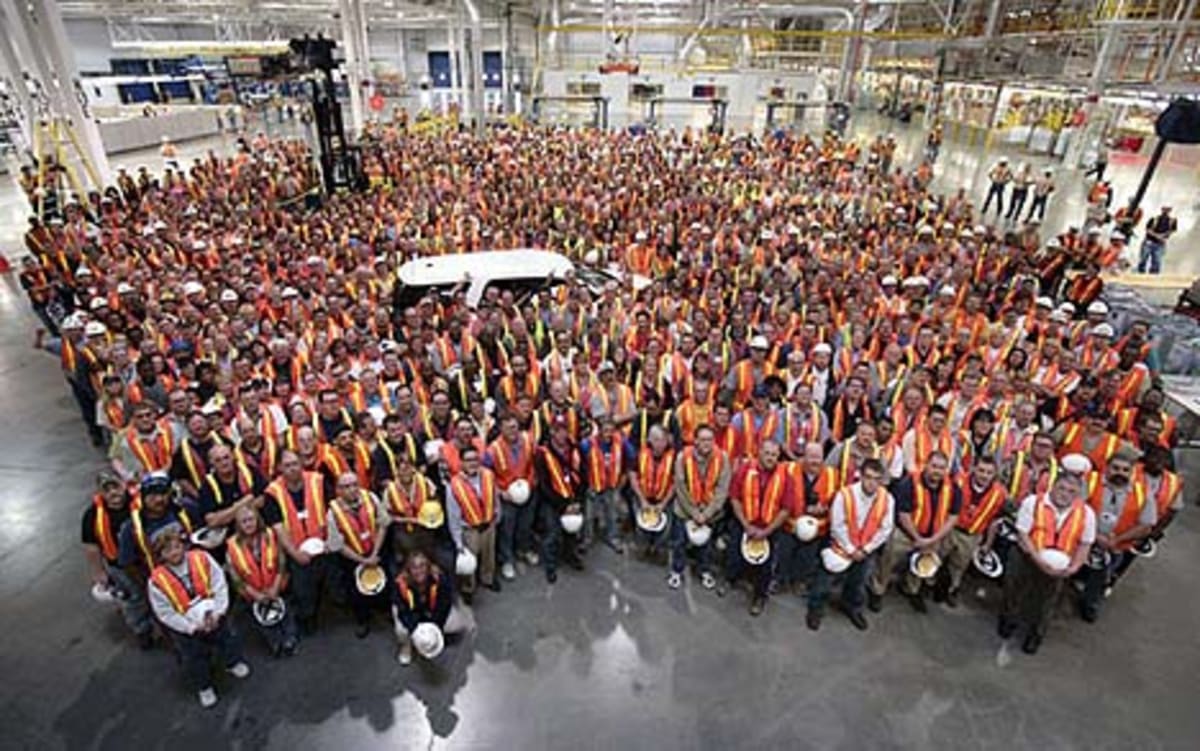
Â
NAKANO: BACK SEAT DRIVING
The terms and conditions established by Treasury will include additional targets that were the subject of Congressional negotiations but did not come to a vote, including:
- Reduce unsecured debt by two-thirds via a debt for equity exchange.
- Make one-half of Voluntary Employee Beneficiary Association (VEBA) payments in the form of stock.
- Eliminate the jobs bank.
- Work rules that are competitive with transplant auto manufacturers by December 31, 2009.
- Wages that are competitive with those of transplant auto manufacturers by December 31, 2009.
These terms and
conditions would be non-binding in the sense that negotiations can deviate from
the quantitative targets above, providing that the firm reports the reasons for
these deviations and makes the business case that it will achieve long-term
viability in spite of the deviations. In addition, the firm will be required to
conclude new agreements with its other major stakeholders, including dealers and
suppliers, by March 31, 2009.
Effects Of A Domestic Auto Industry Failure
"During this very critical time for the global economy, the impact of a
disorderly bankruptcy would be very damaging to our manufacturing base,
affecting jobs well beyond the auto industry," said President Bush. "The
additional job losses and loss from Gross Domestic Product (GDP) would likely
postpone our economic recovery considerably. In addition, these effects could
multiply and result in additional declines in investment, consumption, and
growth, which could worsen the current recession."
The White House issued the following statement:
"The direct costs of American automakers failing and laying off their workers in
the near term would result in a more than one-percent reduction in real GDP
growth and about 1.1 million workers losing their jobs, including workers from
auto suppliers and dealers. Many workers would apply for unemployment benefits,
and to the extent that retirees and other workers lost health insurance, apply
for Medicaid. These new unemployment claims could cost about $13 billion and
would likely add sizeable costs to State Medicaid programs. Additionally,
suppliers may not be able to absorb losses from writing off the accounts payable
owed by auto manufacturers and may not be able to downsize quickly, resulting in
remaining auto companies having supply chains disrupted. These effects on our
economy could multiply as a result of the failure of these companies."
Â
Â
Â
Â
Â
Â
Â
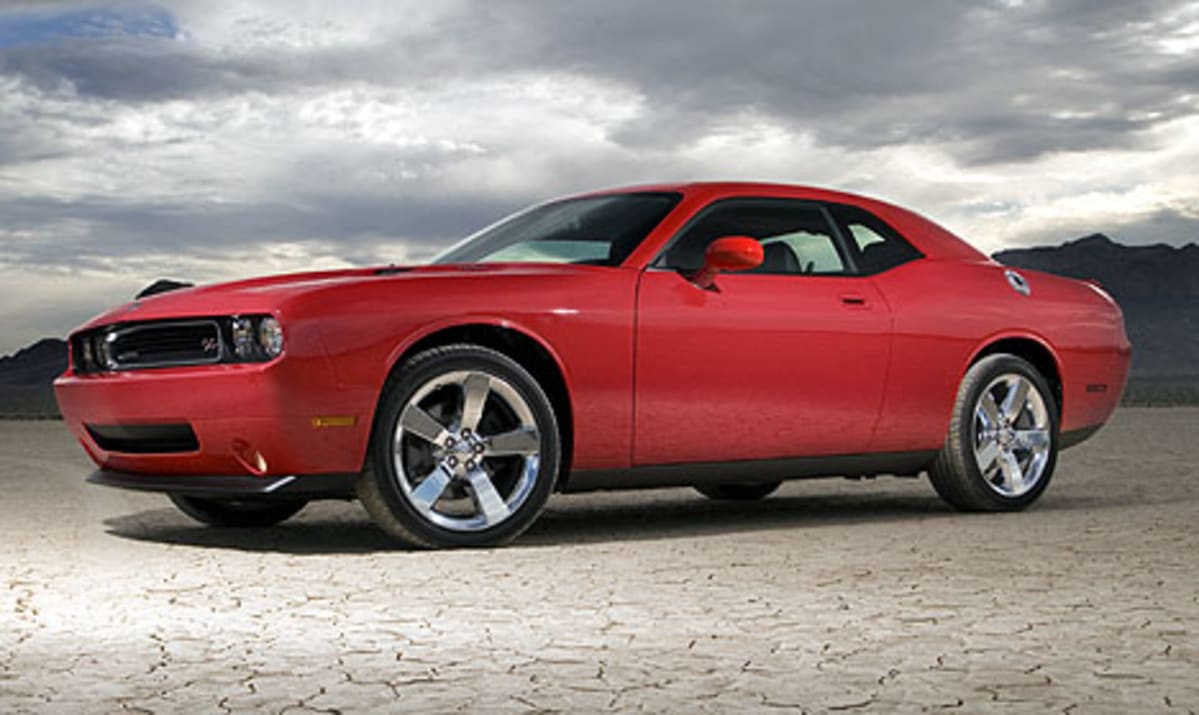
Your Dodge dealer will gladly sell you this Challenger, for a price...
KENNEDY: BACK SEAT DRIVING
THE AMERICAN CAR COMPANIES HAVE HAD THEIR CHANCE
An Open Letter to Congress
Re: The auto bailout
I'm as much a sympathizer as anyone regarding the plight of the US auto
industry. I like American cars, at least the ones that offer rear-wheel drive
technology, and the only new car I ever bought was a US model, a 2000 Mustang GT
which continues to serve me well.
I recently went to the LA Auto Show on a press credential, and I spent my day
there scoping out the newest US-label models. I even wrote an article
complimenting GM, Ford, and Chrysler for finally offering some product that
people want to buy. So you might say that I, of all people, am in the corner of
the US auto companies.
But this morning, I went by my local Chrysler dealer, and I saw there all the
proof I need that the US auto industry doesn't need my tax money to help it out.
The dealer had three very desirable models front and center on the lot - the new
Dodge Challenger. The cars were two of the mid-range Hemi models and one big
bruiser SRT8 Hemi.
I don't need a car right now. And yet, I thought, why not have a look? I could
afford to buy one if I stretched a bit, and doing so would help the economy.
Maybe this was just self-talk, an excuse to make an extravagant purchase. But
would the dealer care? No. Would I be able to make the payments? Well, I
wouldn't sign for the car if I couldn't. Have I ever bought a Chrysler product
before? Just my 1975 Dart Sport, which I owned ten years and 70,000 miles after
it rolled out of the showroom. And up until just recently, I had never even
considered another Mopar product.
But this Challenger. Yum. I walked close, then closer. I saw the first car.
Nice. Around thirty-seven grand. A lot. But look what you're getting!
The second one was the full-boat Hemi. And I noticed that it had two stickers.
The normal one, and one written in marker. "Market Value Adjustment" it said.
And it gave a number. $10,000.
I looked back at the first car, and noticed what I had missed before. It too had
a "Market Value Adjustment" demand of ten grand.
Wow. What's the message here, I wonder? The way I read it is perhaps simplistic,
but here goes. They finally build a car people might want, price it fair but not
cheap, and then the dealer puts it out of range of anyone on a regular income.
Thirty-seven thou - do-able. Nearly fifty? Ridiculous.
So let me say, Mr. and Ms. Congressional Representative - these people do not need
your help. They need a basic lesson in economics. They need to balance (finally)
producing a good product with a little commonsense and a little less greed.
Forget that. What they need is a smackdown. And if that means that a
Japanese-label company takes their market share, well, why should they complain
when they aren't willing to sell their cars for what they're stickered at?
Now before you say it that there are flaws to my argument, I know that the
company doesn't control what dealers ask for their cars. I know that
Japanese-label companies overcharge sometimes too (though it's American car
companies that are famous for it). And I understand that it's a capitalist
world, and they should be able to sell the car for whatever they wish. True,
true, and true. But at the least, can't anyone admit that, in a time when the
companies want help because they can't sell cars, this kind of move is entirely
distasteful, greedy, and wrong?
I can tell you something else that I know is true. I won't be pumping
thirty-seven grand into the economy this Christmas by making an impulsive
new-car purchase. And I sure as hell won't be giving a dealer ten grand just
because he's the only one on the auto row with a new Challenger.
In fact, the Mazda dealer next door had a pretty clean looking Miata for under
twelve grand. Hmm. If I do a decent deal over there, I can get that car for
free - or at least, for just a little bit more than I'll save by not playing the
Chrysler dealer's greedy game.
So as the hearings progress and the whining continues, please remember this,
dear government official:
The American car companies have had their chance. And they're the ones who have
failed to deliver good product. Now that they've finally succeeded on that
score, however, they've forgotten how to move stuff out the door without
angering their customers. And that's not your fault or mine. It's theirs.
Sincerely,
Brian Kennedy
Â
Â
Â
Â
Â
Â
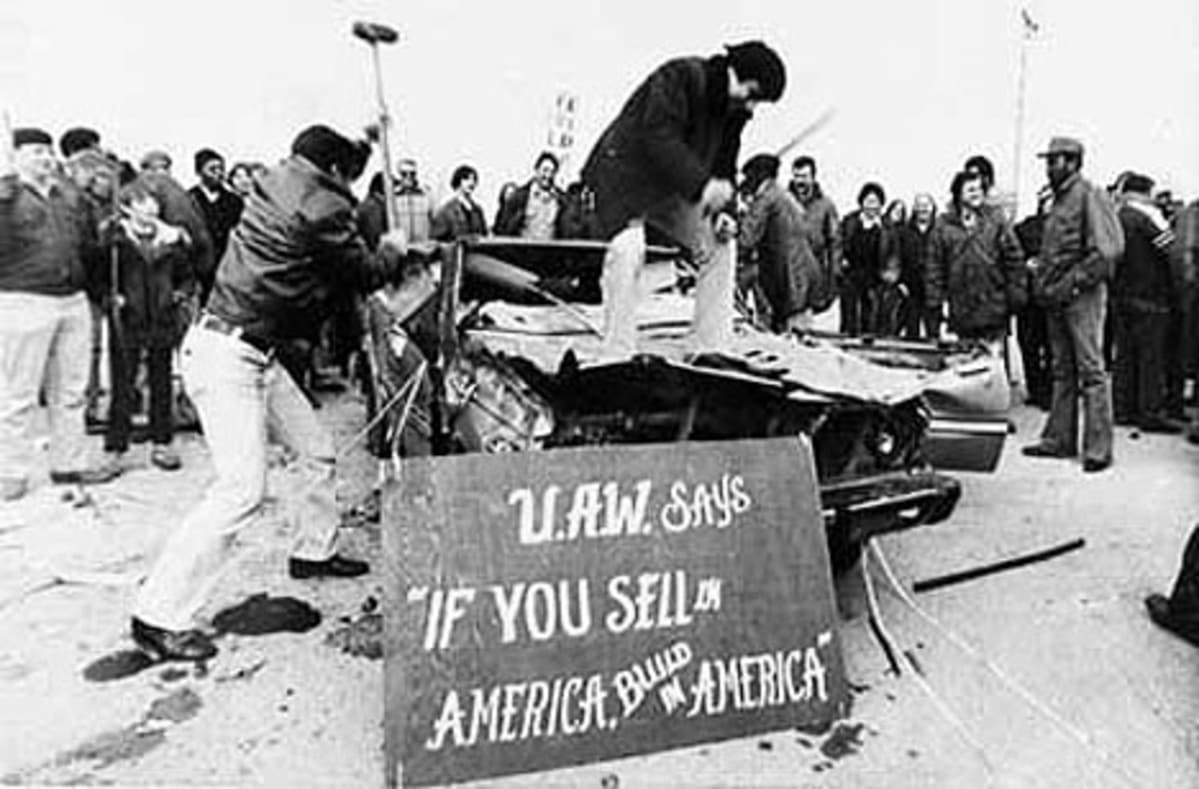
UAW Local 588 members smash a Toyota Corolla, March 3, 1981 (AP)
DAPOZ: BACK SEAT DRIVING LIES, DAMNED LIES, AND LIES ABOUT THE DETROIT THREE Don't Believe Emails Slamming Import Brands and Supporting Detroit    Mark Twain said, "There are three kinds of lies: lies, damned lies and statistics." If Twain were alive today, he might quip, "There are lies, damned lies and lies about the Detroit Three." General Motors, Ford and Chrysler are financial basket cases, but the hyperbole out of Detroit in support of the hometown companies has gone past exaggeration and into falsehood. For a few weeks, we've been hearing that three million auto-related jobs could disappear if the Detroit Three went out of business. Friday, that number suddenly jumped to six million jobs, according to The Engine of Democracy, whoever that is. Coincidentally, on Friday I received an email with the subject of "Ford, Chrysler and GM's contributions after 9/11....." It was a note that had been forwarded many times. It started:
Please pass this along to friends/family/co-workers and out of state contacts if applicable. We need to remind the east coast/DC political idiots that Detroit stepped up on 9/11 to lend a helping hand without any request or prompting. Not that it matters to ingrates like Bawney Fwank at this point...
It went on to say that after 9/11 - supposedly according to CNN - GM Ford and DaimlerChrysler each contributed $10 million to the Red Cross, NYFD and related causes. The email then listed what it said were contributions made by non-U.S. auto companies (this is verbatim from the email):
Audi- Nothing. BMW- Nothing. Daewoo- Nothing. Fiat- Nothing. Honda- Nothing despite boasting of second best sales month ever in August 2001 Isuzu- Nothing. Mitsubishi- Nothing. Nissan- Nothing. Porsche-Nothing. Press release with condolences via the Porsche website. Subaru- Nothing. Suzuki- Nothing. Toyota-Nothing despite claims of high sales in July and August 2001. Condolences posted on the website Whenever the time may be for you to purchase or lease a new vehicle, keep this information in mind. You might want to give more consideration to a car manufactured by an American- owned and / or American based company. Apart from Hyundai and Volkswagen, the foreign car companies contributed nothing at all to the citizens of the United States ... It's OK for these companies to take money out of this country, but it is apparently not acceptable to return some in a time of crisis. I believe we should not forget things like this. Say thank you in a way that gets their attention.
The email had the credibility of an anonymous bank official in Nigeria promising millions of dollars for help getting money out of the country. Who believes this crap? Who forwards it? The sender of the email works at General Motors (gm.com address). The distribution list included someone at Ford; also someone working for the city of Flint. I checked Snopes, a site that catalogs and corrects online rumors and misinformation, and it said the statistics in the email were fabricated. Take a look: http://www.snopes.com/rumors/automakers.asp The Snopes page lists the actual contributions of the non-U.S. automotive brands to 9/11-related causes: · Audi: $100,000 · BMW: $1 million cash plus 10 new X5s to the Red Cross and 100 motorcycles to the NYPD · Honda: $1.5 million · Mitsubishi: $200,000 · Nissan: $1 million · Subaru: $1 million · Toyota: $1 million · VW: $2 million Snopes also corrects the donation figures for the Detroit Three: · GM: $1 million · Ford: $1 million · DaimlerChrysler: $10 million In sum, the non-US companies made noteworthy contributions after 9/11 causes - and donated more than the Detroit-based companies. (At the time, DaimlerChrysler was German-owned.) It seems facts don't matter to a lot of people in Detroit right now. The rallying cry: "Survival at all cost! The ends justify the means!" Maybe that's overly harsh. But if you must lie to rally support for your cause, that indicates something's wrong with your cause. Or with you. It's a shame the defense of Detroit has come to this. - Chuck Dapoz  Â
Â
Â
Â
Â
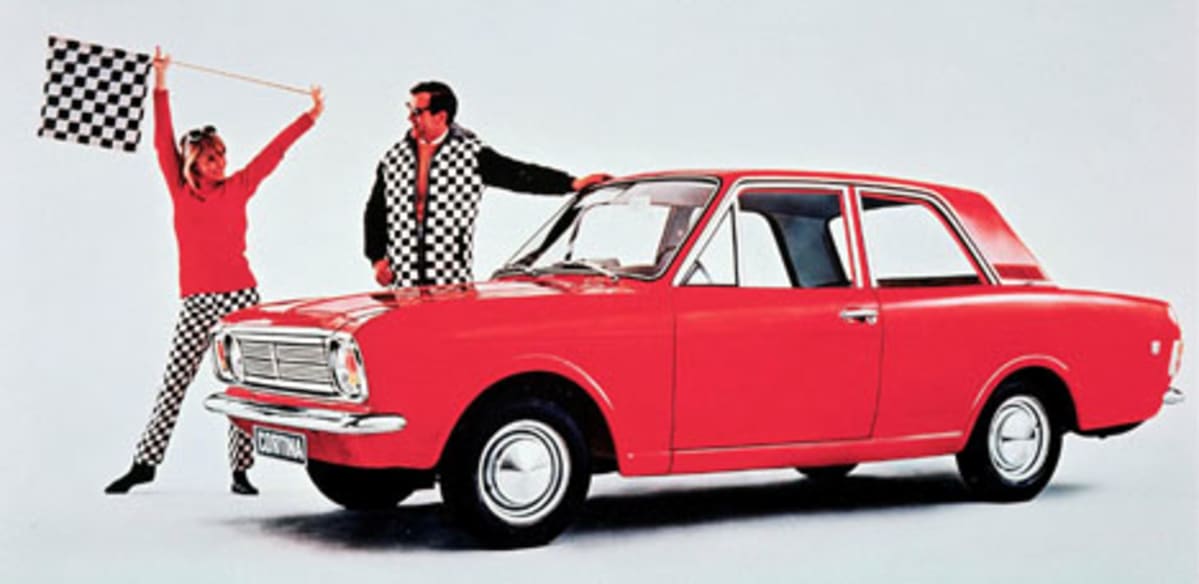
Ye Exec Ed says his English Ford is the most unreliable car he's ever owned
BACK SEAT DRIVING: LETTERS FROM BILL READ MY LIPS Let's Raise The Gas Tax    Dear Friends, Back to an old favorite of mine: Let's raise the gas tax - A LOT. Then, we don't have to worry about CAFE (Corporate Average Fuel Economy) standards, or any other spurious twist to the workings of the Market. Maybe we can use the money to upgrade our roads, bridges, and infrastructure (hey, all the good buzz words). I am aware that the poorest get hit hardest (initially). There can be transfer systems for that, maybe we can allow the use of food stamps for fuel (gas stamps?). Politicians in general, and certain ones in particular have this inability to allow the word 'tax' to cross their lips. But, hey, more than a trillion dollars in deficit spending is evidently okay. You know, we almost (close, but no cigar) instituted a system of increasing MPG through gas taxes during the 1973-1974 oil crisis. President Ford (a Republican, from Michigan, no less) really liked the idea, but the Congress, led by the usual suspects from MI, IL, OH went apoplectic. The United Auto Workers union and The Big Three (still big back then) knew that at that time, the only small cars to be had were from Japan and Europe (granted, at that time, a number of the Euro offerings were garbage, but the MPG figures were good). The Big Three collectively argued that given time, "we can do it ..." (Now class, can you say Pinto?) 35 years later, a whole lot of time has passed, and here we are. Hugsabunch, Bill Wright  Â
Â
Â
Â
A
JOURNAL OF LOS ANGELES & ITS CAR CULTURE That
was LA Car's subtitle when it started back in 1997. It's original website
address was about five times the size of lacar.com. Since then, La Car
became LA Car. Its subtitle became
Reporting From Car Culture Ground Zero, then From The Heart of Car
Culture, to today's The Cars and Culture of Southern California. At
all times, however, we aimed to chronicle the Southland's automotive spirit - much like
one's own
journal or diary.
LA Car has always been a great source
to come back to from week-to-week, to see what articles and reviews have been
added to our rather staggering database. With Back Seat Driving, a.k.a.
BSD (note the similarity to two well-worn abbreviations, BS and BFD) and Hot
Wires - Hot & Tender News From the Car Culture (co-located with Back Seat
Driving, and updated at least daily), we give you some reasons to
come back more often (all opinions, by the way, are those of the respective
author).
So, go
ahead and bookmark www.lacar.com. We'll be
sure to always provide a link to Hot Wires and the latest Back Seat
Driving blog entry. In the meantime, welcome to the journal and journey from
the heart of the car culture. - Roy NakanoÂ
For
past Blog entries, click the following:
November 2008
October 2008
September 2008
August 2008
July 2008
June 2008
May 2008
April 2008
March 2008
February 2008
January 2008
December 2007
November 2007
October 2007
September 2007
August 2007
July 2007
June 2007
May 2007
April 2007
March 2007
February 2007
January 2007
December 2006
November 2006
October 2006
September 2006
August 2006
July 2006
June 2006
May 2006
April 2006
March 2006
February 2006
January 2006
December 2005
November 2005
October 2005
September 2005
August 2005
July 2005
June 2005
May 2005
April 2005
March 2005
February 2005
January 2005
December 2004
November 2004
October 2004
September 2004
August 2004
July 2004
June 2004
May 2004
April 2004
